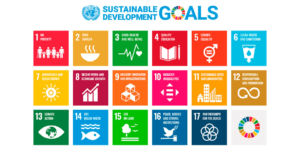When was the last time you paused to read an article on environmental issues in Ghana? Most times, we just ignore them and act as if we have nothing to do with environmental issues. The funny thing is, whether you read or not, we all suffer the consequences. Our country is dealing with a number of urgent environmental issues that seriously jeopardise both the welfare of citizens and the future viability of the economy.
These problems demand quick attention from both the government and citizens since they are complex, complicated and broad. The country is suffering from significant environmental deterioration as a result of issues like deforestation, irresponsible land use, pollution, and climate change.
The negative effects of these environmental issues on Ghanaians’ health and way of life are severe. For instance, inadequate waste management techniques have caused disease outbreaks like cholera in our communities, and air pollution in cities is linked to respiratory issues. Deforestation has caused soil degradation, biodiversity loss and a worsening of the climate.

Water pollution, according to Natural Resource Defense Council, is defined as “when harmful substances – often chemicals or microorganisms – contaminate a stream, river, lake, ocean, aquifer, or other bodies of water, degrading water quality and rendering it toxic to humans or the environment.”
According to the United Nations International Children’s Emergency Fund, (UNICEF)-Ghana, “67 percent of households in Ghana are at risk of drinking water that is contaminated with faecal matter. Moreover, only four percent of households treat water suitably before drinking and 93 percent of households do not treat water at all”.
Water pollution, which has become a serious problem and is endangering the health and livelihoods of millions of people, is currently one of our country’s biggest environmental challenges. The potential for more serious environmental difficulties is increased by the nation’s continued economic growth, which makes the situation more worrisome.
The seriousness of the issue is highlighted by the World Health Organization’s finding that “about 14 percent of Ghana’s population (about 4.3 million people) still lack basic water and a majority of them rely on unprotected sources”.
What are SDGs?
In very simple terms, SDGs (Sustainable Development Goals) are a set of special goals that countries from all over the world have agreed to work on together to make this world a better place for everyone to live in.
“Sustainable Development Goals (SDGs) are the layout to achieve a better and more sustainable world for all by 2030. These goals are a call for action to address a series of global challenges, such as poverty, inequality, climate, environmental degradation, and justice. The SDGs are an expanded version of the eight Millennium Development Goals (MDGs), which guided global action to reduce extreme poverty as from 2000 to 2015. (1),” according to HEC Business school, Paris.
Image from HEC, Paris
The attainment of some SDGs, especially those relating to water pollution, is directly impacted by the severe environmental difficulties that Ghana, like many other nations, must overcome.
In particular, SDG 6 – ‘Clean Water and Sanitation’ – strives to guarantee the accessibility and sustainable management of water and sanitation for everyone. Water pollution is a major issue in this country where many water sources are contaminated by chemical and industrial waste, and human waste from shoddy sanitary facilities, among others. The country will need to make major steps to promote the adoption of sustainable water management techniques, expand access to safe and cheap drinking water, and improve water quality in order to meet SDG 6.
Ghana’s water pollution is also related to SDG 14, ‘Life Below Water’. The oceans, seas, and marine resources are to be protected and used sustainably for sustainable development. Fishing communities that are located downstream from mining sites are disproportionately impacted by water pollution, which has a disastrous effect on marine life in Ghana. The country will need to make an effort to control how industrial waste is disposed of, encourage sustainable mining methods, and safeguard marine ecosystems in order to achieve SDG 14.
Do you think we may ever achieve SDG 6 & 14?
Email [email protected]










